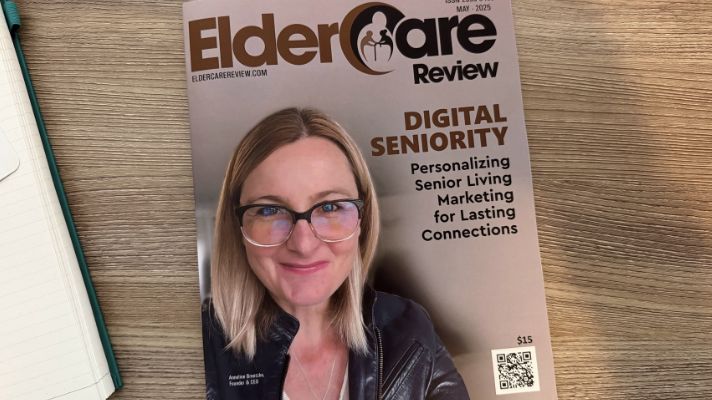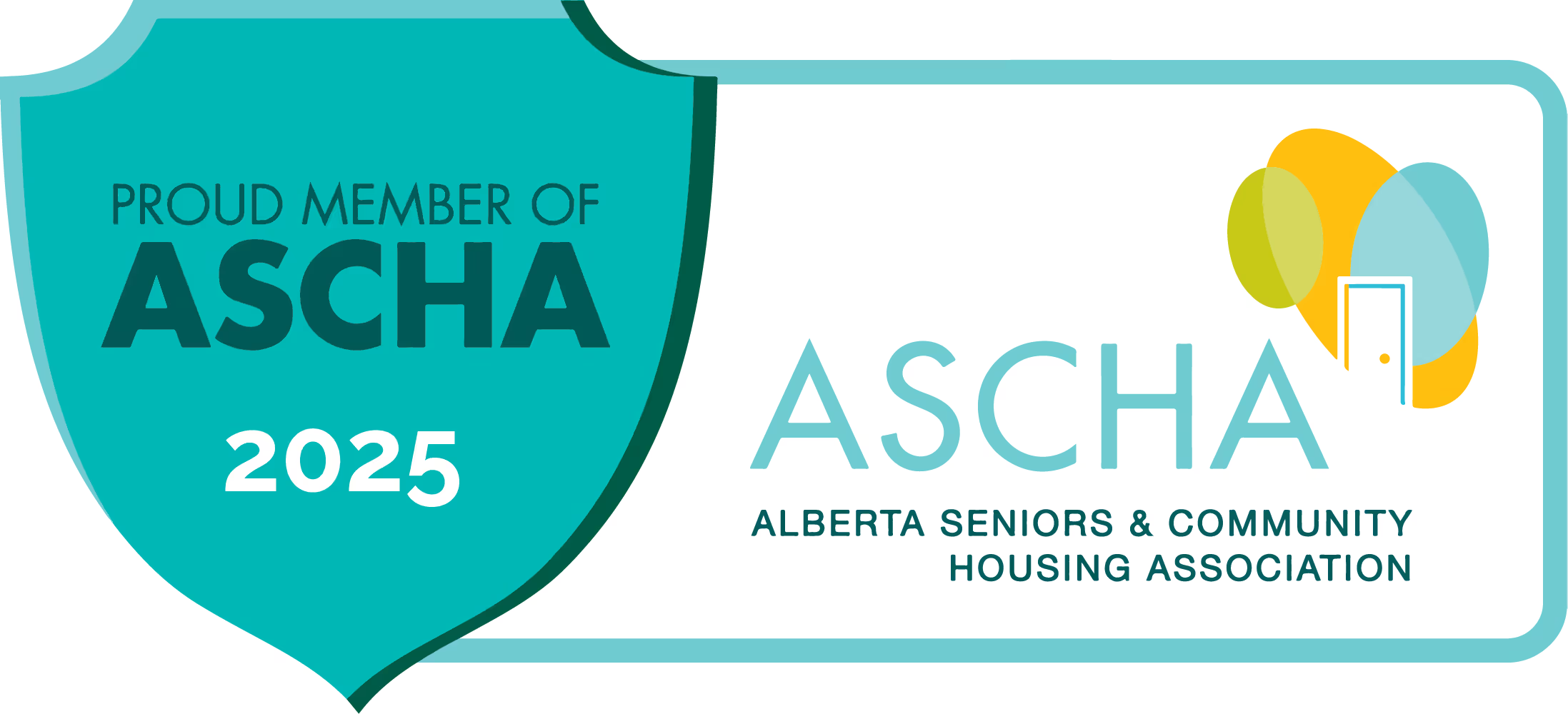
Managing multiple senior living communities? Should you centralize them under one brand domain with dedicated community pages, or give each location its own independent website?
For multi-community senior living brands, this choice comes up all the time. We’ve guided dozens of brands to web strategies that build trust with families and highlight each location’s unique character.
You can bring every community page under one primary domain or give each residence its own standalone site. Each approach carries trade-offs in branding, search engine optimization, paid media, user experience and maintenance effort.
Below, we’ll break down the facts so you can select the option that best fits your team’s capacity, budget and long-term goals.
➡️Why We Often Recommend a Single Domain Strategy
A single website with multiple locations may look something like this: yourseniorlivingbrand.com/location
- Unified Brand & Trust
When families land on yourseniorlivingbrand.com/location, they instantly know they’re with your parent company.
A single domain creates a consistent look and feel across all pages - logos, colors, navigation and messaging - so visitors never wonder whether they’ve stumbled onto the right site.
- Stronger SEO Advantage
All your content marketing, link-building and local listings point back to one root domain.
That consolidated domain authority helps every location page rank more effectively in search engines. Instead of splitting your SEO efforts across multiple websites, you build one robust site that gains momentum over time.
For any gardeners reading this: rather than trying to grow four small gardens, you're pouring all your energy into one lush, thriving landscape that’s far easier for Google (and future residents) to find!
- Simplified Content Management
Updating events, posting blogs or tweaking metadata happens in one place. Your team spends less time juggling CMS logins and more time on high-impact marketing strategy. Plus, a clear content optimization plan ensures we avoid duplicate content and keyword cannibalization across subpages.
- Lower Costs & Maintenance
One hosting plan, one security certificate, one analytics dashboard. You save on infrastructure and service fees - funds you can reinvest into paid campaigns, accessibility improvements or on-site photography.
Think about hosting fees, SSL certificates, SEO services... times four (depending on the number of domains you have). A single domain saves a lot of money while delivering bigger returns.
- Consistent User Experience
Smooth navigation, unified branding and clear information hierarchy all contribute to a positive user experience. Visitors know exactly where to find what they need, whether they’re researching memory care in Carlsbad or independent living in Ottawa.
➡️Are There Any Downsides to a Single-Site Approach?
- Limited Design Flexibility
If one community is a luxury ocean-front resort-style and another a cozy countryside retreat, a shared template can sometimes feel generic.
In those cases, we explore microsites or design variations while keeping everything under the same parent domain.
- Keyword Cannibalization Risks
Pages vying for the same “best senior living community” phrase can split traffic. Instead of helping your site rank better, it creates competition between your own pages, confusing Google and splitting your SEO power.
We address this with precise keyword targeting and unique page content, ensuring each location shines for its distinct audience.

➡️When a Multi-Domain Strategy Makes Sense
- Tailored Messaging for Target Audiences
Operating on separate domain names lets you speak directly to each target audience segment - memory care families, active independent-living seniors or luxury-focused prospects - with bespoke copy, imagery and calls to action.
- Hyper-Focused Local SEO
A dedicated domain can zero in on specific search terms (e.g., “affordable retirement homes in Carlsbad”). When you optimize metadata, reviews and schema markup around a single service or locale, you send crystal-clear signals to search engines.
In theory, this approach could help each site outperform competitors in very specific, local search results. But success hinges on running each domain like a fully independent, high-quality website - which is a fair sized job.
- Distinct Service Separation
If your communities offer wildly different care levels or lifestyles, separate domains help avoid any confusion. Prospective residents immediately know they’ve arrived in the right place for their needs.
➡️Trade-Offs of a Multi-Domain Approach
- Increased Operational Costs
Hosting, SSL, design, SEO contracts, paid media, and content updates multiply with each new site - especially for larger sites that demand regular refreshes and analytics tracking.
- Diluted SEO Authority
Each secondary domain builds authority from scratch. Backlink campaigns, social shares and directory listings won’t transfer between sites, slowing your overall growth.
- Complex Content & Brand Management
Teams must juggle multiple CMS logins, parallel analytics dashboards and repeated brand-guideline audits. It’s easy for details to slip through the cracks, affecting user experience.
- Visitor Confusion
Without clear cross-linking and unified branding cues, families may wonder whether separate domains all belong to the same parent company.
➡️ Preparing Your Domains for a Future Sale
Why Separate Domains Can Ease a Sale
- Clean Asset Transfer
Each community lives on its own domain name, so when you sell, you simply hand over that domain (and its hosting) to the buyer. There’s no need to extract a subdirectory or rework your parent site’s navigation.
- Preserved SEO Equity
With its own domain, all backlinks, indexation and content marketing efforts flow directly to that asset. The buyer inherits the full “SEO advantage” of that site, rather than starting fresh or losing traction by migrating a subpage off a root domain.
- Brand Independence
A standalone site can operate and sell as its own brand. The buyer can re-brand or re-position it without impacting your remaining properties or risking confusion with a shared parent domain.

When It’s Not a Deal-Breaker
- Subdirectory Export Is Feasible
If you’ve used a single domain strategy, you can still carve out /community-for-sale as a standalone site:
- Export its content into a new CMS (Content Management System) or hosting account
- Set up 301 redirects so the old URLs point to the new domain
- Update local listings and directory links
- Built-In Buyer Benefit
Buyers often pay more for a mature site with strong SEO and traffic. If your single-site approach has given that location significant visibility, a well-managed subpage can still command a premium - provided you document traffic, lead volumes and backlink profiles clearly.
Bottom line on a domain strategy for selling
If you know you’ll sell a community as an independent business unit, a separate domain (or microsite you can easily spin off) reduces technical complexity and preserves its standalone SEO value.
If the sale is distant or a “maybe,” the simplicity, cost-savings and unified marketing strategy of one root domain may outweigh the extra overhead of multiple sites.

➡️How to Choose Your Ideal Domain Name Strategy
- Assess Your Services & Audiences
Do your communities share core offerings and a similar visual identity? A single domain strategy will likely deliver the best SEO advantage and cost savings.
- Review Your Resources
Smaller teams and tighter budgets almost always benefit from one root domain - fewer moving parts mean more time for content marketing and digital marketing innovation.
Likewise, brands with numerous communities often don’t have the bandwidth to maintain dozens of individual sites; the more locations you operate, the more a single-domain strategy streamlines resources and keeps costs in check.
- Weigh Distinctive Branding Needs
If you genuinely need custom sites for varied services, a multi-domain strategy can work - just plan for higher hosting, content optimization, media spend, and analytics overhead.
- Align with Your Long-Term Vision
Whether you choose one site or many, make sure your domain name strategy dovetails with your overall marketing strategy, SEO roadmap, and growth goals.
➡️Find the Right Path with Digital Seniority
Choosing between a single website vs. multiple domains isn’t just a tech decision - it's also about building trust and making it easy for families to choose you.
Digital Seniority combines human-centered design, data-driven insights and deep senior living expertise to craft a domain-name strategy that fuels today’s growth and paves the way for a clean handover tomorrow.
Whether you choose one root domain or a set of specialized sites, we’ll help you strengthen your brand, maximize search engine optimization, and deliver a seamless user experience - so you can focus on what truly matters: providing exceptional care to our older adults.
Ready to map out your domain name strategy? Contact us today, and let’s build an online presence that works for every community you serve.





.jpg)






.jpg)















%201.png)



